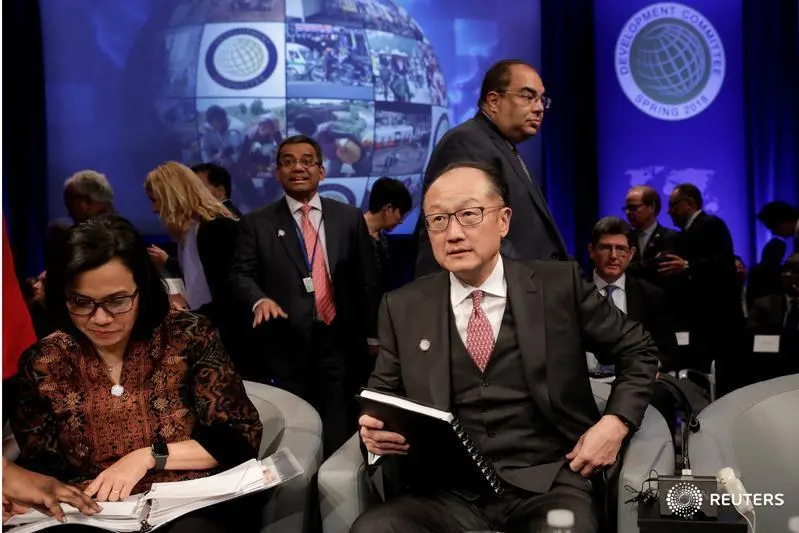PHOTO
SHARJAH: Dr. Jim Yong Kim, Former President of the World Bank Group, has attributed the current global inflation partly to the $6 trillion worth of stimulus provided by the US to tackle the consequences of the COVID-19 pandemic.
"There are many things that are happening at the same time. We just experienced the worst pandemic in one hundred years. The response in the UAE was very good. But in the rest of the world, 6 million people died. So, this a huge tragedy. It’s caused a lot of upheavals in the economy. In the United States for example, there is US$6 trillion worth of stimulus that may have led now to the situation of a very high inflation," the former world official told the Emirates News Agency (WAM) on the sidelines of the International Government Communication Forum, which started in Sharjah today.
Formula for a recession
Kim, who from July 2012 to February 2019, served as the 12th President of the WPG, detailed other reasons behind "the very dangerous situation" the world is reeling under now. "Now what’s happening in response to the inflationary pressure is that many countries are making the same things at the same time. They are reducing their fiscal stimulus and reducing the money supply by increasing the interest rates. Because those things are happening at the same time in so many countries, there is a real potential that this would lead to a recession."
He expressed deep concern over the situation in many developing countries, calling upon the World Bank, the IMF and G20 to do their utmost to protect the poorest.
"As a person who is concerned most with developing countries, I am uncertain about what would happen in these countries. One of the main lessons I have learned over many years of working on the global level, is that this is the time when a global action is really needed. What we’ve learned from the pandemic is that we must work together. But now is the time for leaderships to move together. There would be a meeting between the World Bank and the IMF and I am sure that they would be talking about what we need to do now in order to make sure that we would not descend into a terrible global recession that affects everybody. I’ve watched as this group has taken action to prevent very bad outcomes before. So, I remain hopeful, and I wish the governments of the world can respond effectively to a very dangerous situation right now."
Interest rate hike "inevitable"
On how current inflationary pressures could be addressed, Kim views interest rate hikes "inevitable" to stem inflation. "Tightening monetary policy for several developing countries is really important. If you keep injecting a lot of money to the economy and borrowing as a result, that’s very, very difficult. The concern of course is that 'are you protecting the poorest in your country while at the same time you’re tightening the policy?' I’m sure this would be a strong recommendation coming out of the next World Bank-IMF meetings.
"We have to protect the poorest while tightening the fiscal policy. And there are very specific ways to do that, like conditional cash transfer, and others, to support the poorest. That’s always been the concern of the World Bank and I’m sure this would happen this time as well."
"I have never lived in a world where that’s the case".
Kim explained that central banks have to tackle inflation and to do so they have to reduce the money supply, and the interest rate is a way to do that. He, however, is deeply concerned about the upheavals in the exchange rates that "have never been seen before".
"For the most part, majority of countries have no choice, and they have to do that. The outcome of that is the current exchange rates that I have never seen before: the British Pound and the US Dollar are nearing parity! I have never lived in a world where that’s the case. And Euro is already below the dollar! So, there are some situations that are evolving that we have never seen before, and we don’t know what would happen."
He called upon global financial institutions to hammer out a solution to the besetting challenges. "However, I am on the optimistic side in the sense that there are mechanisms like the World Bank and the IMF to get together to discuss this issue. Also, there is the G20 which was built to tackle that kind of economic issues after the global financial crisis. So, I will be watching carefully over the next few months to see what these global bodies will do. But let me emphasise that it’s really important for the ministers of finance and central bank governors to talk to each other and come up with joint strategies to move forward. This is what these institutions have been built for."





















